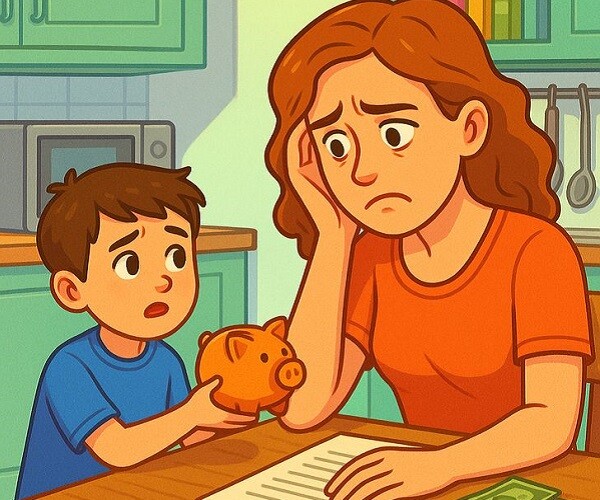It can be challenging for parents when their children start to talk back. While it’s natural for parents to want to put a stop to this behavior, it’s important to recognize that there can be some benefits to a child’s development.
There are two sides to every story, and the same is true for children talking back. If approached positively, it can be an essential factor in their cognitive and emotional development.


Here are three benefits of children talking back that parents should know:
1. Enhanced Brain Development
Children who talk back exhibit a rapid response and hidden intelligence in their “debating” skills. They are analyzing and identifying logical fallacies in their parents’ arguments, demonstrating their developing critical thinking and information evaluation abilities.
Additionally, their quick rearrangement of language to refute arguments showcases a strong expressive capability.
2. Self-Awareness
As children start to talk back, they are recognizing their independence and individuality. Previously, they may have been obedient and compliant, largely due to their underdeveloped self-awareness and heavy reliance on their parents’ opinions.
However, at this stage, they are developing their own thoughts and emotions and are eager to express themselves. For example, when asked to give up a toy for their sibling, they may protest, “This is my toy; why should I give it to my sibling?” What may seem like defiance is their way of saying, “Respect my opinion.”
Additionally, they are learning to stand up for themselves and their rights from an early age.

3. Resilience and Courage
In real-life situations, children need the courage to push back. The ability to express differing opinions under pressure is a sign of resilience and courage. It demonstrates not only bravery but also self-confidence in defending one’s beliefs.
These children are learning to face a complex world. For instance, individuals who dare to express their opinions to their bosses or refuse unreasonable requests in their lives have often honed these skills from a young age. They understand that blind compliance is not the solution, and in certain crucial situations, it’s essential to boldly voice personal opinions.
However, talking back should not be encouraged in all circumstances. Unreasonable arguments, like anger and violence, require parental intervention. Parents need to distinguish between constructive debate and meaningless quarrels.
By doing so, children will learn the value of respect in communication and how to convey their perspectives without hurting others. This lays the foundation for developing essential social skills and equipping them with the tools they need to succeed in life, from navigating discussions to building positive relationships.


Here are two things parents should keep in mind when their children talk back:
1. Managing Emotions
When children talk back, take a moment to breathe and calm down. Instead of reacting immediately, turn the argument into a constructive conversation. Ask questions like, “Why do you think that?” or “Can you tell me more about your perspective?”
As they share their reasons, show empathy and encourage them to continue explaining. You can further probe with questions like, “Can you give me more insight into that?” or “Is there something specific that makes you feel this way?” Keep the tone of the conversation gentle and open.
If you disagree with their viewpoint, explain your reasoning calmly and emphasize that it’s normal and healthy to have differing opinions. Help them understand that debates should be civil and that it’s possible to respectfully disagree without feeling threatened.

2. Providing a Safe Space
Organize weekly family debates to discuss topics your children are likely to have strong opinions about. This provides a safe and structured environment for them to freely express themselves. Topics can range from choosing their favorite toys to social issues they care about.
As long as their language remains rational and grounded, listen to their opinions and consider their perspectives. In reality, children who dare to talk back often have the confidence to change the world as they grow up. They learn to stand up for what they believe in and fearlessly express their views, even in the face of challenges.
These debates not only enhance their communication skills but also strengthen the bond between parents and children. When children feel comfortable expressing their opinions, they also learn to listen to and respect the perspectives of others. This lays a solid foundation for their personal and social development in the future.


































